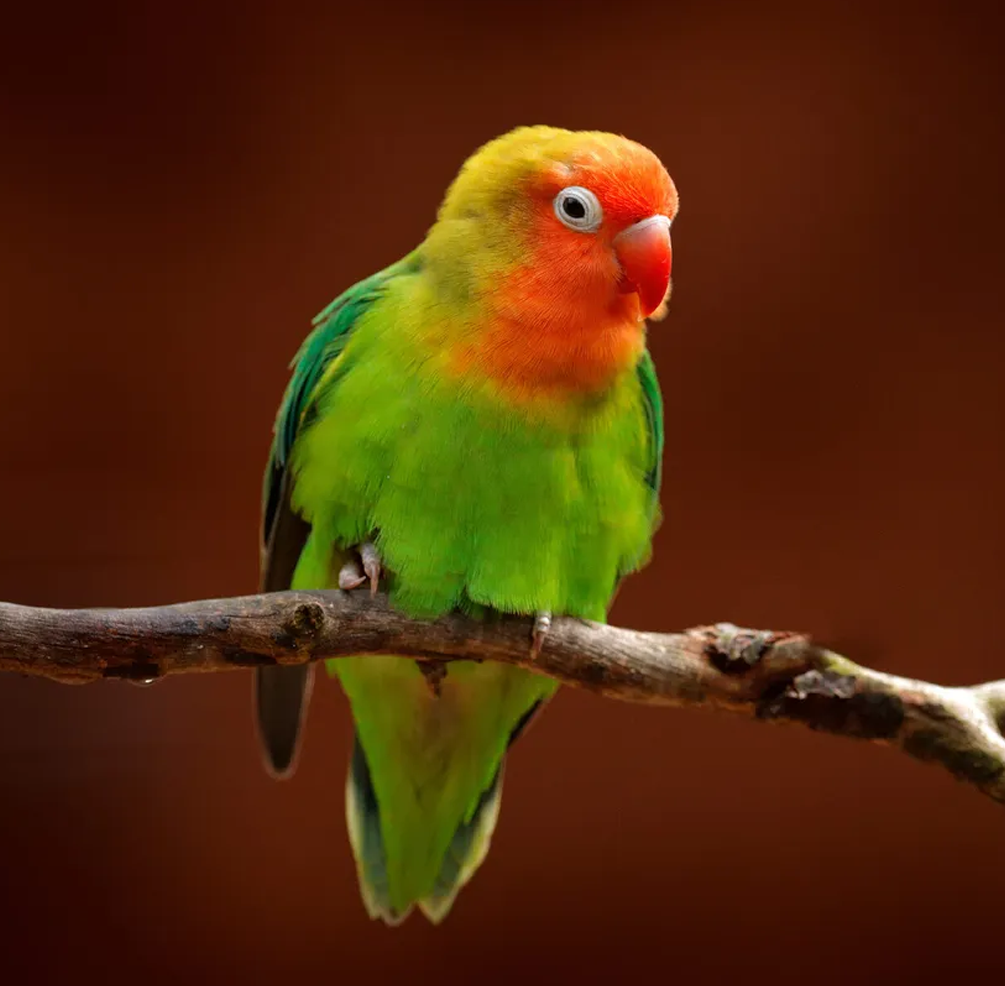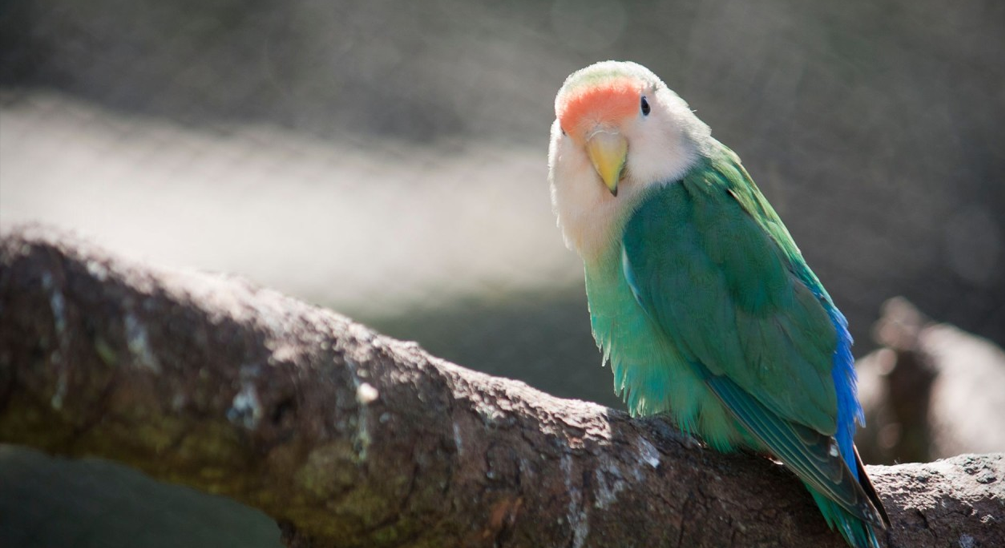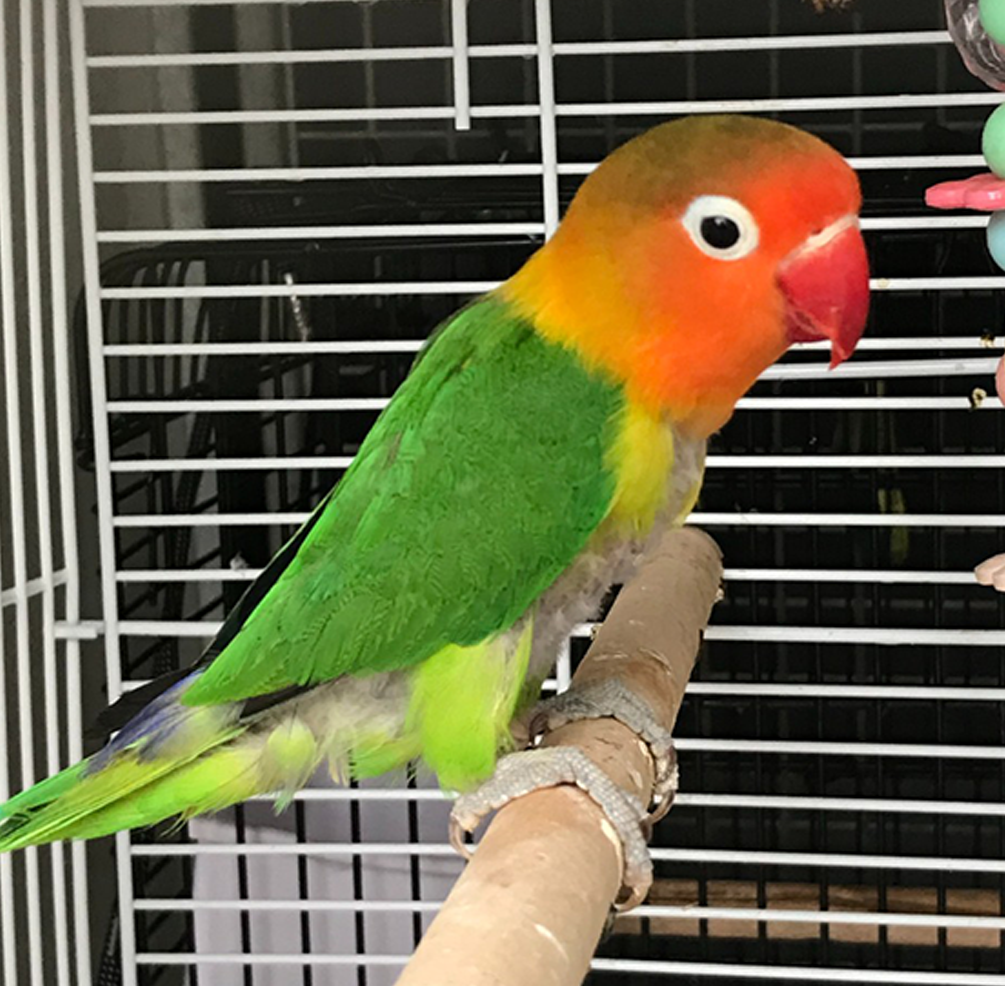Lovebirds are small, vibrant parrots known for their affectionate nature and strong bonds with their partners. To keep these charming birds healthy and happy, it’s essential to provide them with a well-balanced diet that meets their nutritional needs. In this article, we’ll explore what lovebirds eat, including the best foods to offer and those to avoid.
The Core of a Lovebird’s Diet: Seeds and Pellets
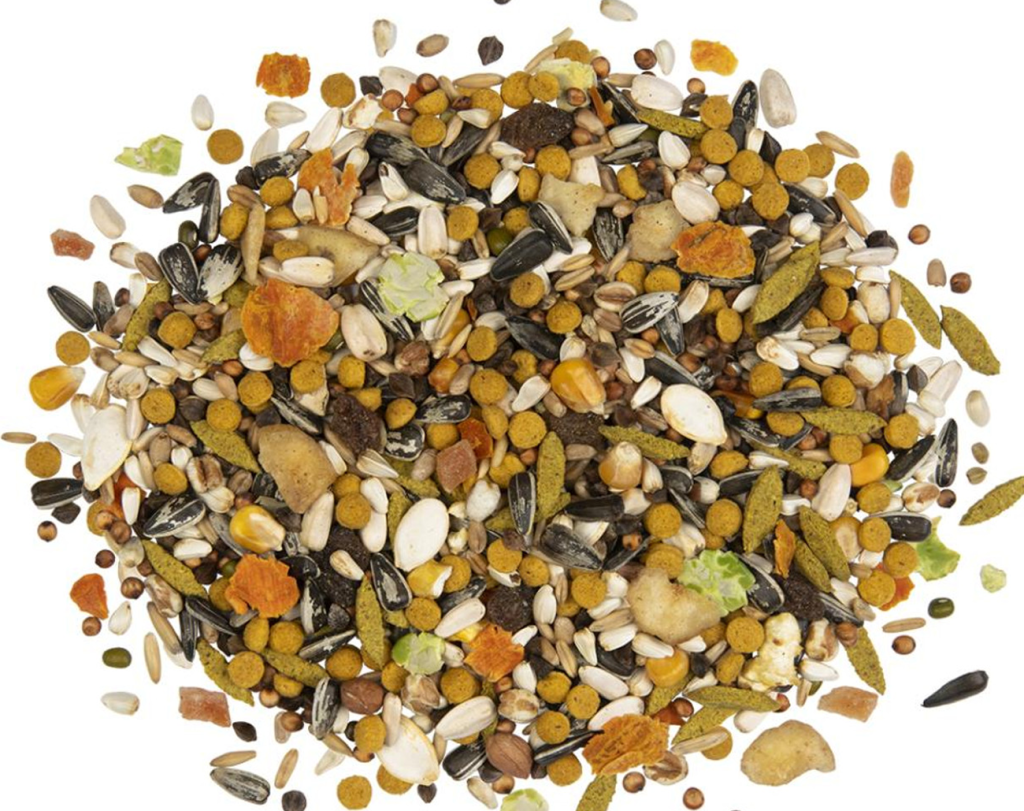
1. Seeds: A Traditional Staple
Seeds have long been a staple in the diet of lovebirds. A high-quality seed mix should include a variety of seeds such as millet, canary seed, and sunflower seeds. However, it’s important to note that seeds alone may not provide all the necessary nutrients. Sunflower seeds, in particular, are high in fat and should be given in moderation to prevent obesity and related health issues.
2. Pellets: A Balanced Option
Commercially formulated pellets are a great option for lovebirds as they are designed to provide a balanced diet. Pellets ensure that your lovebird receives all the essential vitamins and minerals in every bite, reducing the risk of dietary deficiencies that can occur with a seed-only diet. Many veterinarians recommend that pellets make up about 50-70% of a lovebird’s diet.
Adding Variety: Fresh Fruits and Vegetables
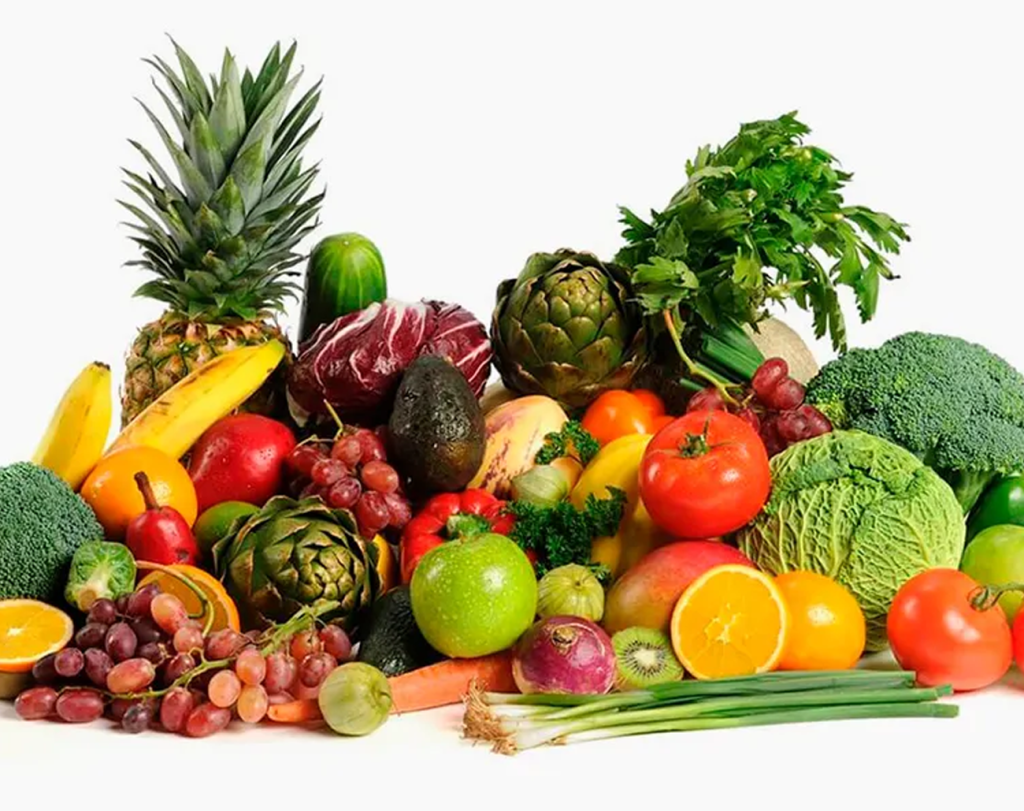
3. Fresh Fruits: A Sweet and Nutritious Treat
Fruits are a delicious and nutritious addition to a lovebird’s diet. Offer fruits such as apples (without seeds), bananas, berries, grapes, and tropical fruits like mangoes and papayas. These fruits are rich in vitamins, particularly vitamin C, and antioxidants that help boost your bird’s immune system. Just be sure to wash them thoroughly to remove any pesticides and offer them in moderation to avoid excessive sugar intake.
4. Vegetables: A Source of Vital Nutrients
Vegetables should make up a significant portion of your lovebird’s daily diet. Leafy greens such as spinach, kale, and romaine lettuce are excellent choices, as they are high in calcium and vitamin A. Other nutritious vegetables include carrots, bell peppers, broccoli, and cauliflower. These vegetables provide a wide range of essential nutrients and should be offered fresh and raw whenever possible.
Grains and Proteins: Important Dietary Components
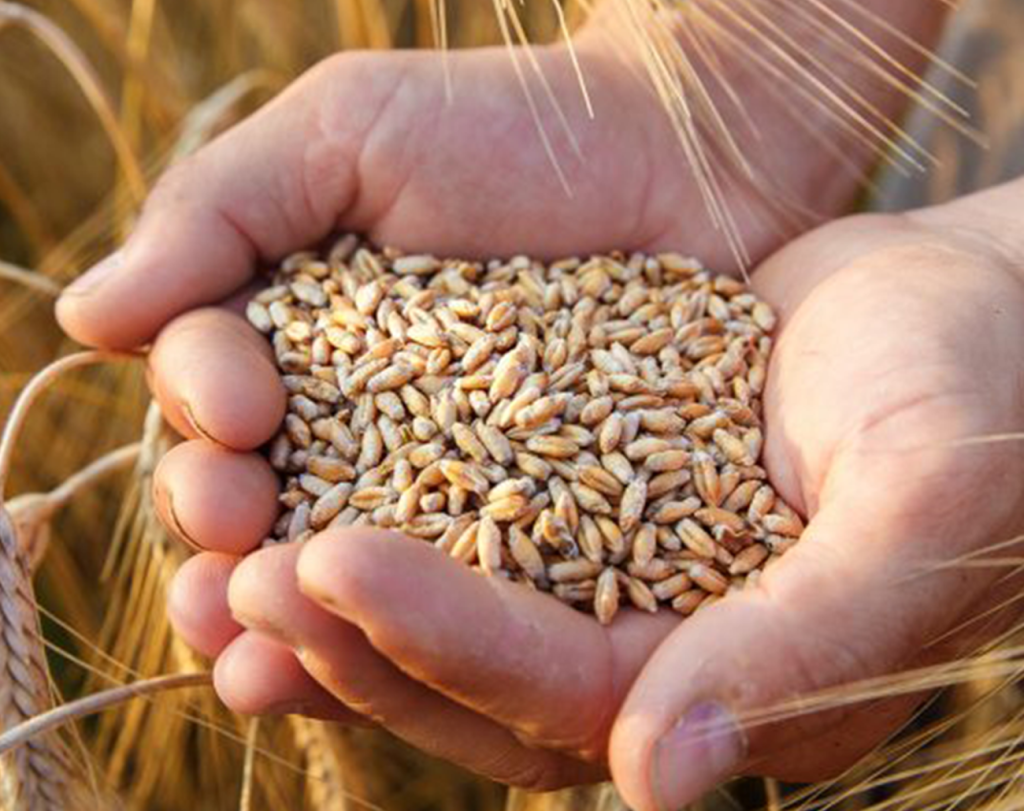
5. Grains: Fiber and Energy
Grains like cooked brown rice, quinoa, and oats are great sources of fiber and energy for lovebirds. They can be mixed with other foods to add variety to your bird’s diet. Whole grains are preferable as they retain more nutrients compared to processed grains.
6. Protein: Essential for Growth and Repair
Lovebirds need protein to support their growth and tissue repair. Cooked eggs are a good source of protein and can be offered occasionally. Additionally, some lovebirds enjoy small amounts of lean cooked meats or legumes like lentils and chickpeas.
Treats and Foods to Avoid
7. Nuts: A Healthy, High-Energy Treat
Nuts like almonds, walnuts, and pecans can be offered as occasional treats. They are rich in healthy fats and proteins but should be given sparingly due to their high-calorie content.
8. Foods to Avoid: Protecting Your Lovebird’s Health
There are certain foods that should never be given to lovebirds, as they can be toxic or harmful. These include:
- Avocado: Contains a toxin called persin, which is fatal to birds.
- Chocolate and Caffeine: Both can cause serious health issues and even death in birds.
- Onions and Garlic: These can cause digestive problems and other health issues.
- High-fat, High-salt, and Sugary Foods: Avoid giving your lovebirds processed human foods, as these can lead to obesity, heart disease, and other health problems.
Water: The Essential Element
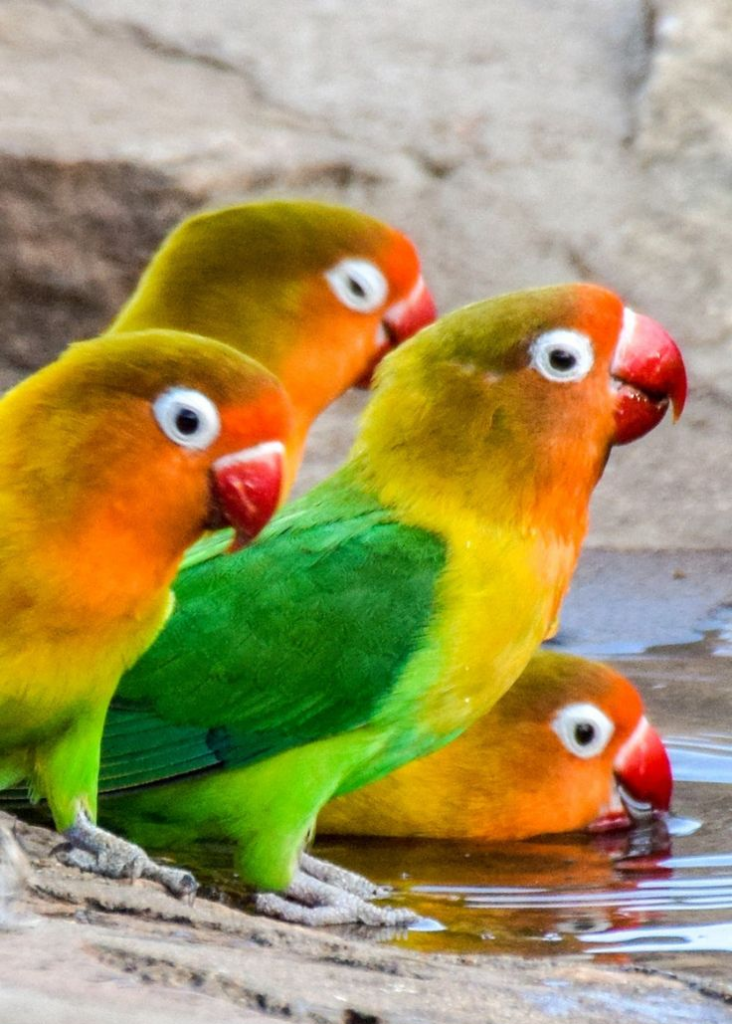
Always provide your lovebirds with clean, fresh water. Water should be changed daily to prevent contamination, which can lead to bacterial infections. Some lovebirds enjoy bathing in their water dish, so consider providing a shallow dish specifically for this purpose.
Conclusion
Feeding your lovebirds a varied and balanced diet is key to ensuring their long-term health and happiness. By offering a mix of seeds, pellets, fresh fruits, vegetables, grains, and occasional treats, you can provide all the nutrients they need to thrive. Remember to avoid toxic foods and consult with an avian veterinarian if you have any questions about your lovebird’s diet. With the right care and nutrition, your lovebirds will remain vibrant, healthy, and full of life.
Share this content:


